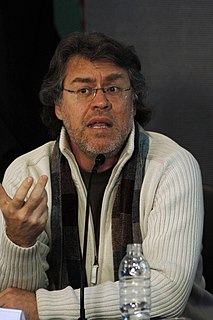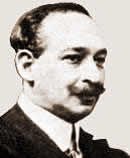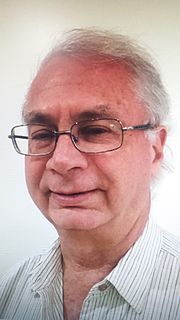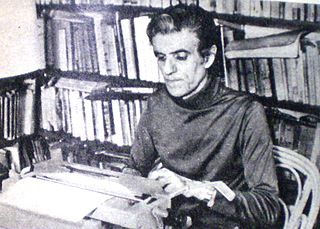 W
WCarlos Astrada was an Argentine philosopher.
 W
WSonia Berjman is a Doctor of Art History and also Philosophy and Letters. A protector of parks, squares, and statues of the city of Buenos Aires, she is one of the media's main references for these issues.
 W
WGregorio Bermann (1894–1972) was an Argentine psychiatrist, philosopher, activist, author, and humanist. Born in Buenos Aires to Polish Jewish immigrants, he was the youngest of ten siblings, eight of which had been Born in Poland. He was a leader in the student movement Argentine University Federation in Cordoba during the first half of the 20th century.
 W
WMario Augusto Bunge was an Argentine philosopher and physicist who was mainly active in Canada.
 W
WFacundo Cabral was an Argentine singer, songwriter and philosopher.
 W
WÁngel Cappelletti (1927–1995) was a philosopher and university professor. He was born in Rosario. He studied philosophy at the Universidad Nacional de Buenos Aires where he also got his PhD degree in 1954. He moved to Venezuela in 1968 and began teaching at the Simon Bolivar University until his retirement in 1994, when he returned to Rosario. During his career he translated works from Greek and Latin and composed numerous works on Ancient philosophy as well as on the subjects os Positivism and Anarchism in Latin America.
 W
WCarlos Cossio was a militant university reformer, jurist, lawyer, legal philosopher and Argentinian professor. One of his most important works is the concept of the Egological Theory of Law.
 W
WLeón Dujovne was an Argentine writer, philosopher, essayist and journalist.
 W
WEnrique Domingo Dussel Ambrosini is an Argentine and Mexican academic, philosopher, historian, and theologian. He served as the interim rector of the Universidad Autónoma de la Ciudad de México from 2013 to 2014.
 W
WJosé Pablo Feinmann is an Argentine philosopher, writer, playwright and TV host. He has also written several screenplays for domestic film production and international coproductions.
 W
WRicardo Forster is an Argentine philosopher, historian of ideas and political critic.
 W
WErnesto Garzón Valdés is an Argentine philosopher. He has been professor of philosophy of law at the universities of Córdoba and La Plata in Argentina and, upon being exiled in Germany during the administration of Isabel Perón and the subsequent dictatorship in Argentina, at the universities of Bonn, Cologne and Mainz. He worked at the embassy of the Republic of Argentina in Bonn as a cultural attaché and as plenipotentiary minister until 1974, when he was expelled from the diplomatic service for political reasons. He then taught legal philosophy at Bonn and Cologne, until he gained a chair in political science at Johannes Gutenberg University in Mainz in 1981. He has been visiting professor at various European and Latin-American Universities. The Universities of Córdoba (Argentina), Palermo (Argentina), Valencia (Spain), Helsinki (Finland), Santa Fe (Argentina), Valparaiso (Chile), Alicante (Spain), Buenos Aires, and Pompeu Fabra have awarded him with the title of Doctor honoris causa.
 W
WCarlos Bernardo González Pecotche, also known as Raumsol, was an Argentine humanist and thinker. He created and developed Logosophy in 1930.
 W
WJosé Ingenieros was an Argentine physician, pharmacist, positivist philosopher and essayist.
 W
WAlejandro Korn was an Argentine psychiatrist, philosopher, reformist and politician. For eighteen years, he was the director of the psychiatry hospital in Melchor Romero. He was the first university official in Latin America to be elected thanks to the student's vote. He is considered to be the pioneer of Argentine philosophy. Along with Florentino Ameghino, Juan Vucetich, Almafuerte and Carlos Spegazzini, he is considered to be one of the five wise men of La Plata.
 W
WSantiago Kovadloff is an Argentine essayist, poet, translator, anthologist of Portuguese literature and author of children's stories. He was born in Buenos Aires where he graduated in Philosophy at the University of Buenos Aires with a thesis on the thought of Martin Buber called "The hearer of God". Some of his works were translated into Hebrew, Portuguese, German, Italian and French and others have spread throughout Spain.
 W
WErnesto Laclau was an Argentine political theorist and philosopher. He is often described as an 'inventor' of post-Marxist political theory. He is well known for his collaborations with his long-term partner, Chantal Mouffe.
 W
WLeiser Madanes (1950) is a writer, philosopher and Argentine professor. Throughout his career he has published several books, as the main focus the study of modern philosophy as Hobbes and Spinoza, freedom of expression and the state's relationship with the freedoms of men. Its main areas of study are modern philosophy and political philosophy.
 W
WTomás Maldonado was an Argentine painter, designer and thinker, considered one of the main theorists of design theory of the legendary Ulm Model, a design philosophy developed during his tenure (1954–1967) at the Ulm School of Design in Germany.
 W
WRicardo Guillermo Maliandi Argentine writer and philosopher, devoted to ethics.
 W
WRodolfo Mondolfo was an Italian philosopher who lived in Italy and Argentina.
 W
WRisieri Frondizi (1910–1983) was an Argentinian philosopher, anthropologist, and rector of the University of Buenos Aires.
 W
WJorge Aníbal Romero Brest was an influential art critic in Argentina, who helped popularize avant-garde art in his country.
 W
WRaúl Scalabrini Ortiz was an Argentine writer, philosopher, journalist, essayist and poet, friend of Arturo Jauretche and Homero Manzi, and loosely associated with the political group Fuerza de Orientación Radical de la Joven Argentina (FORJA).
 W
WSilvia Carolina Scotto is an Argentinian history professor, with degrees in philosophy and politics. In 2007, she became the first woman to take over as rector of the National University of Córdoba, in an institution that is more than 400 years old. In 2013, she was elected a member of the Argentine Chamber of Deputies for the Front for Victory in the Córdoba Province. On 6 August 2014, she resigned for "strictly personal reasons".
 W
WJuan José Pérez Sebreli is an Argentine sociologist, essayist and philosopher. Throughout his intellectual work, he concentrated on the notions of reason, city and everyday life.
 W
WTomás Várnagy is an Argentine social scientist and philosopher, professor at the University of Buenos Aires (UBA).